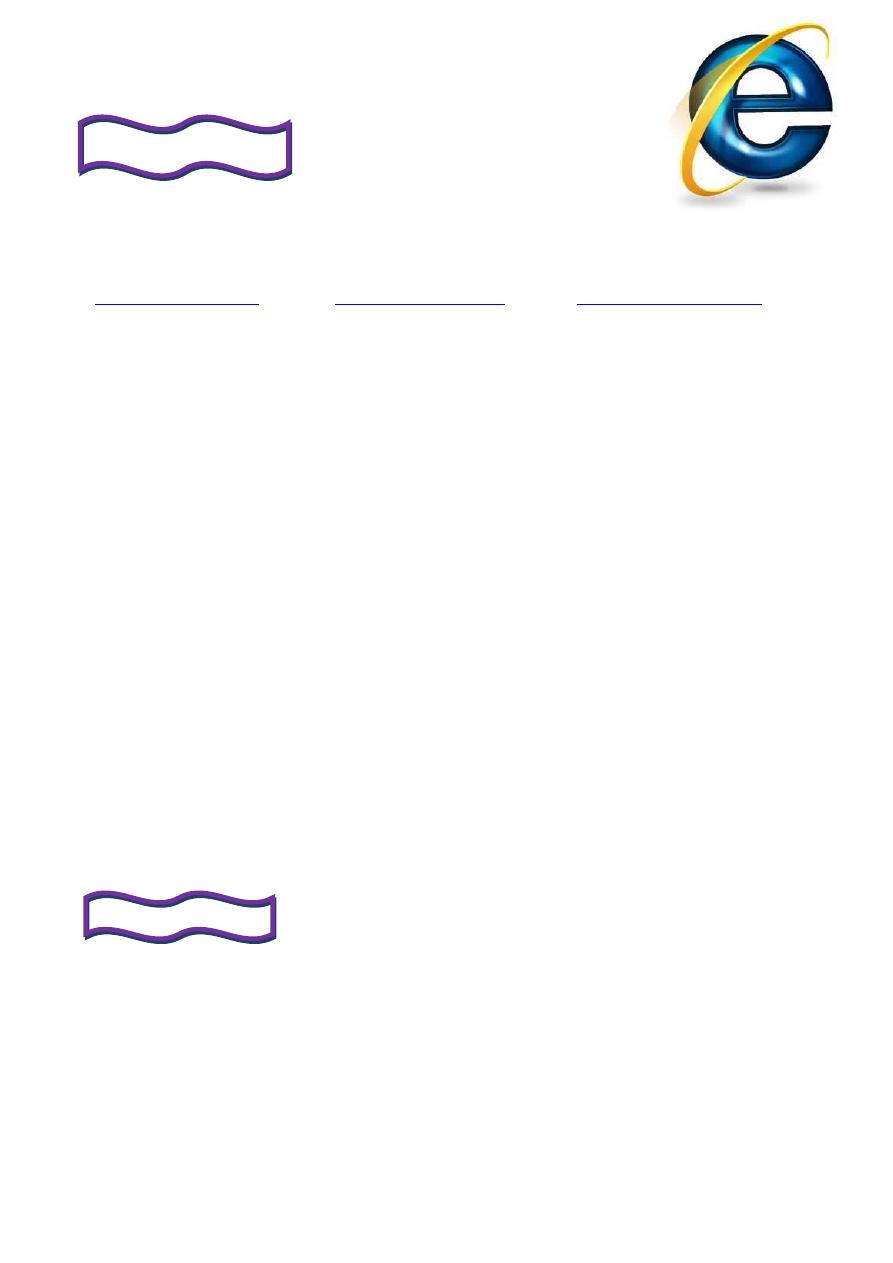
First stage – College of Medicine – University of Mosul\ Nineveh
The Internet Explorer- lerture3
2016-2017
Maha al ani
1
The search engine: A program that searches information
on the World Wide Web by looking for specific keywords and return a list of
information found on that topic. As example to the search engine:
Search engines do not really search the World Wide Web directly. Each one searches
a database of web pages that it has harvested and cached. When you use a search
engine, you are always searching a somewhat stale copy of the real web page. When
you click on links provided in a search engine's search results, you retrieve the
current version of the page.
Each search engine has its own algorithm for finding information. They are classified
into:
• Human editors: engines that use people to classify web sites into
categories.
• Automated crawlers: engines, which read web pages and store the text.
Search engine databases are selected and built by computer robot programs called
spiders. These "crawl" the web, finding pages for potential inclusion by following
the links in the pages they already have in their database.
• Meta: Engines send the users query to other search engines. And their
databases of web pages, within a few seconds, you get back results from all the
search engines queried. Meta-search engines do not own a database of Web pages;
they send your search terms to the databases maintained by search engine
companies. Meta-Searchers Still Smarter.
Pop-Up Blocking
Pop-Ups are annoying little windows or messages that pop-up when you visit certain
sites. They are used for marketing purposes.
1. Click the tools menu, select Pop-up Blocker.
Search Engines
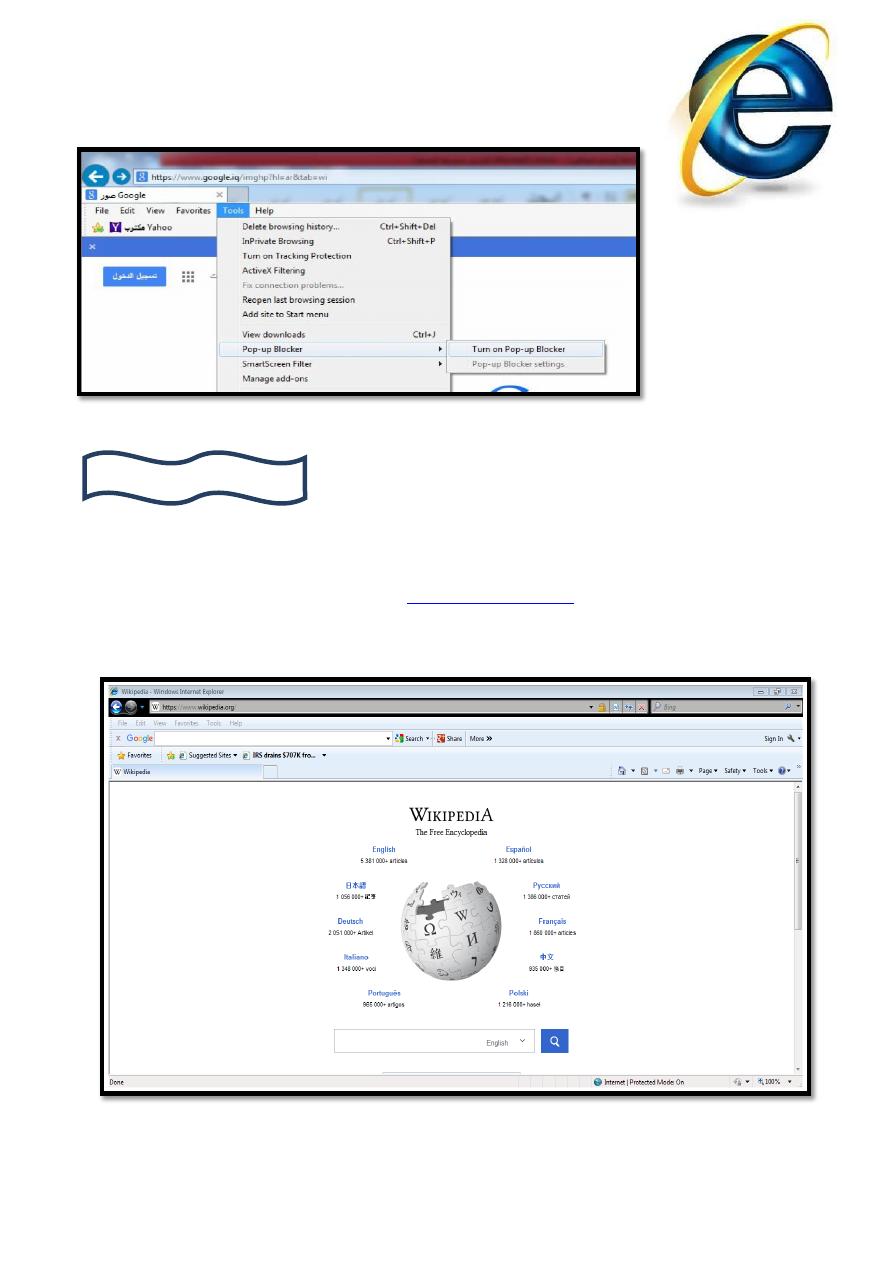
First stage – College of Medicine – University of Mosul\ Nineveh
The Internet Explorer- lerture3
2016-2017
Maha al ani
2
2. Select turn on Pop-up blocker.
Online Encyclopedias
There are many online sites that contain encyclopedias. The most common
encyclopedia site is Wikipedia.org
1. Log in to the site encyclopedia
2. The page for the web site will appear.
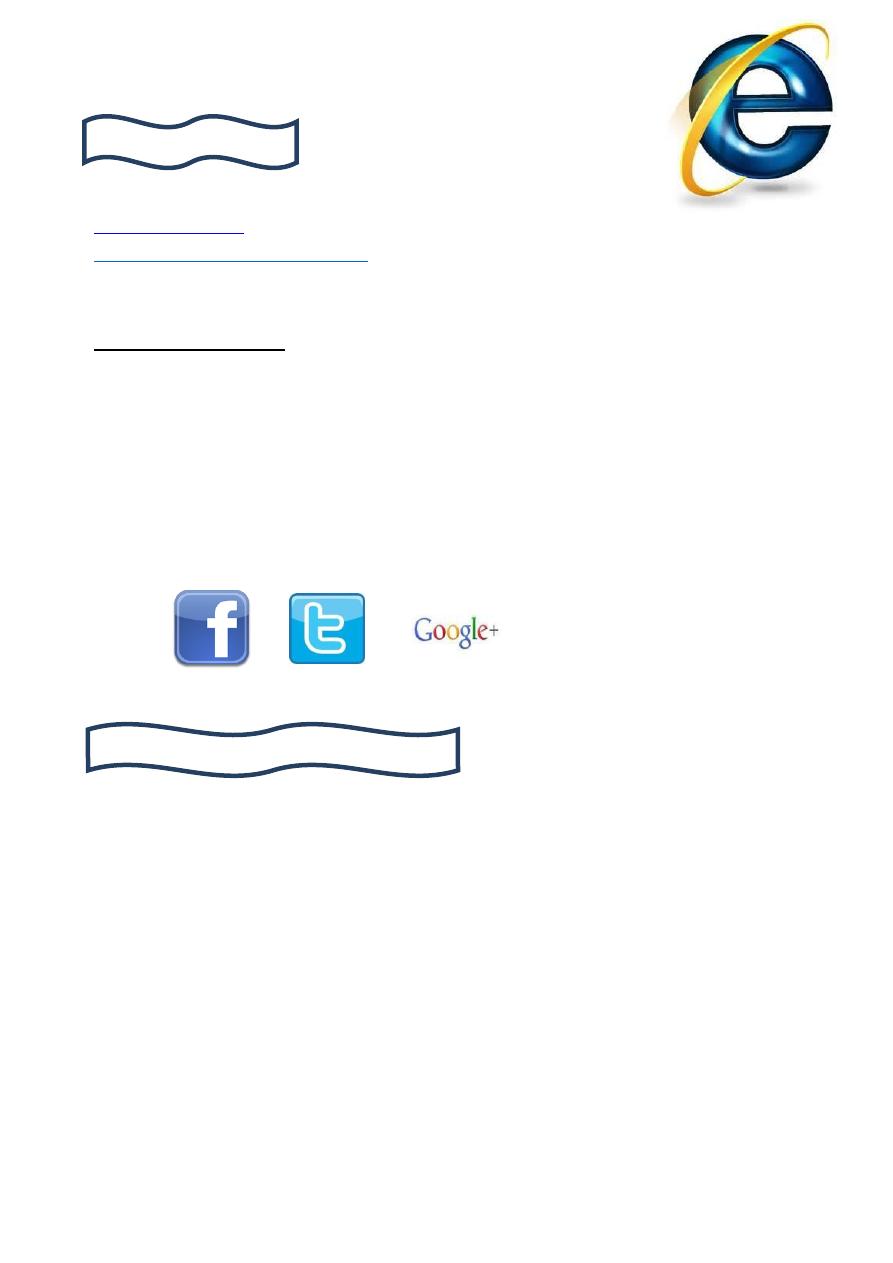
First stage – College of Medicine – University of Mosul\ Nineveh
The Internet Explorer- lerture3
2016-2017
Maha al ani
3
Online Dictionaries
The internet contains many online dictionaries, such as:
https://www.bing.com/translator
then choose translator
Social networking:
It is websites allow users to be part of a virtual community.
The two most popular sites are currently Face book and Twitter ,
and recently
Google+ these websites also provide an important linking element between users
that allows friends to communicate directly with each other. Because people often
have friends from different places and different times in their lives, social
networking sites provide an opportunity to keep in touch with old friends and to
meet new people as
Well.
Voice over Internet Protocol (VoIP)
(VoIP) means hardware and software that enable people to use the internet
as the transmission medium for telephone calls by sending voice data in packets
using IP (Internet Protocol) rather than using traditional circuit transmissions.
One advantage of VoIP is that the telephone calls over the internet do not incur
a surcharge beyond what the user is paying for internet access, in the same way that
the user does not pay for sending individual e-mails over the internet. There are many
internet applications available such as Viber, Tango, Talk ray, Skype is a VoIP
app and service that allows you to send free text messages, make free voice calls.
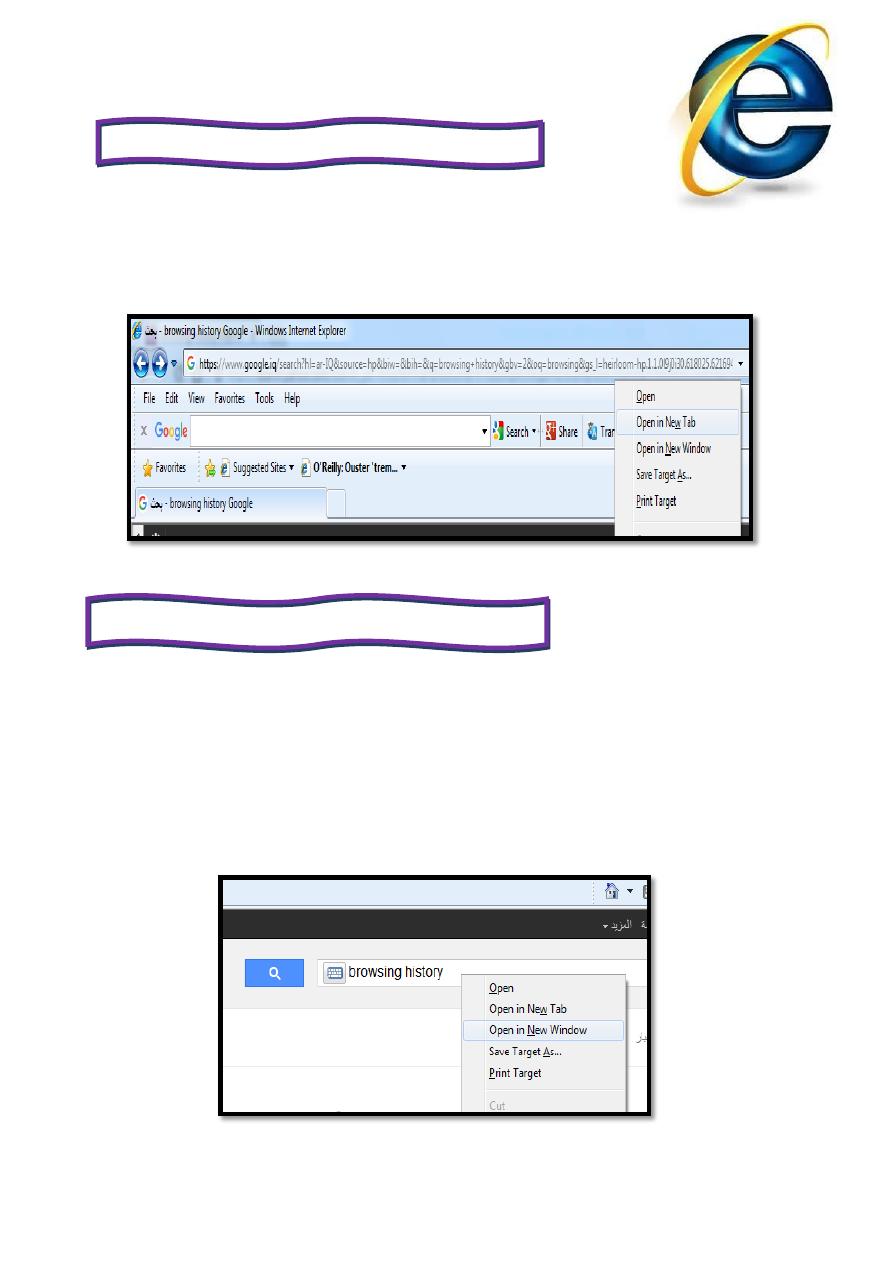
First stage – College of Medicine – University of Mosul\ Nineveh
The Internet Explorer- lerture3
2016-2017
Maha al ani
4
Opening a Web Page within a New Tab
To open a web page within a new tab do the following:
1. Right click on a hyperlink.
2. From the submenu displayed click Open In a New tab.
3. The hyperlink web page will appear within a new tab.
Opening a Web Page within a New Window
To open a web page within a new window, do the following:
1. Right click on a hyperlink.
2. From the submenu displayed click Open in a New Window.
3. Two windows of the internet explorer will appear. One displays the
original page while the seconds displays the hyperlink web page.
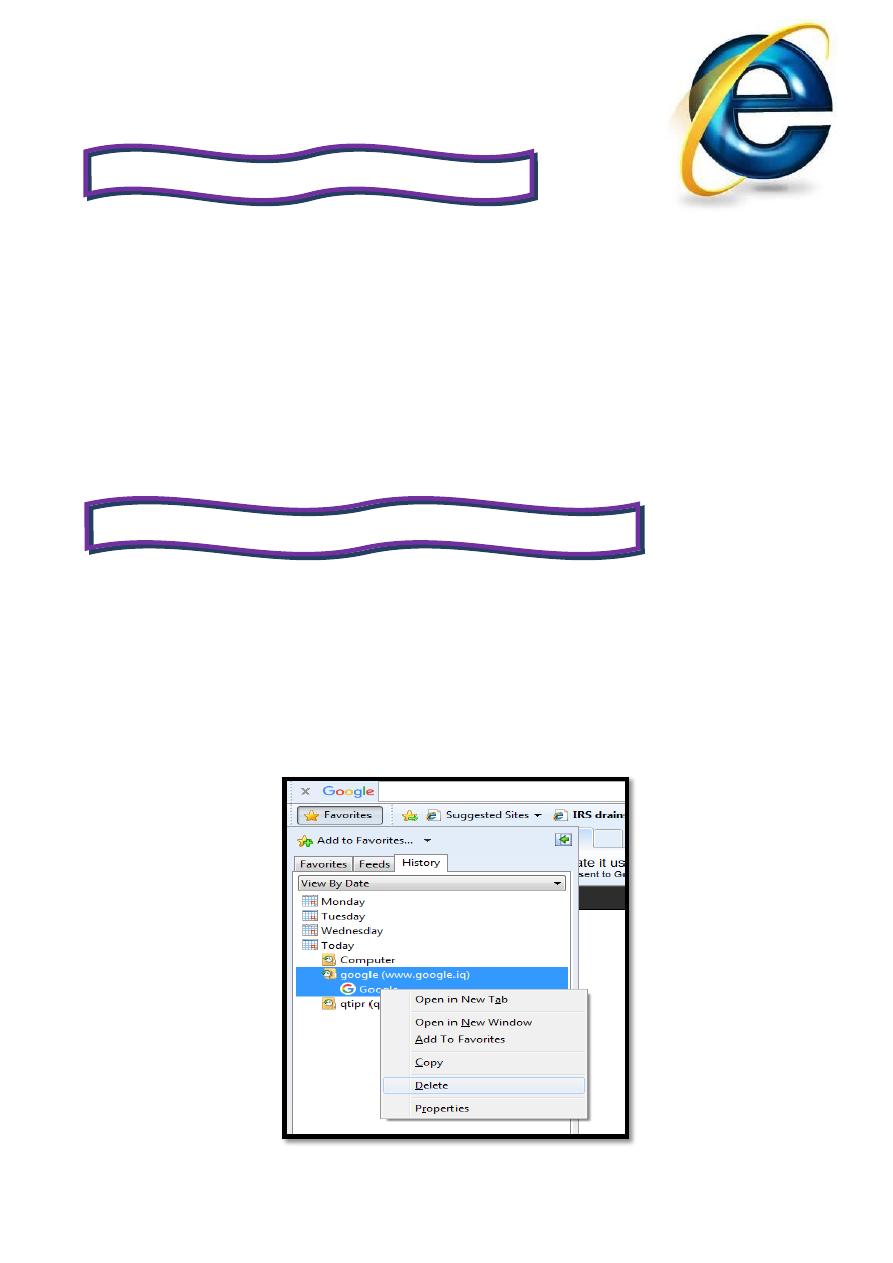
First stage – College of Medicine – University of Mosul\ Nineveh
The Internet Explorer- lerture3
2016-2017
Maha al ani
5
Manage and delete your browsing history
Internet Explorer keeps track of all the websites you have visited in the past,
As long as the history hasn't been cleared or deleted to free up disk space on your
computer. The Internet Explorer history makes it easier for users who have decided
to revisit websites if they haven't been bookmarked or to return to websites they
may have forgotten the address.
Browsing history is the information that Internet Explorer remembers and stores
On a PC as your browse the web. This includes info you've entered into forms,
passwords, and sites you've visited, and it helps make your browsing experience
better. If you're using a shared or public PC, you might not want to Internet Explorer
to remember your browsing data.
View your browsing history and delete specific sites
By viewing your browsing history, you can choose to delete specific sites, or
return to a webpage that you've already visited.
1. In Internet Explorer, select the Favorites button or click Ctrl+H from
keyboard.
2. Select the History tab, and choose how you want to view your history by
selecting a filter from the menu. To delete specific sites, right-select a site
from any of these lists and then select Delete. Or, return to a page by selecting
any site in the list.
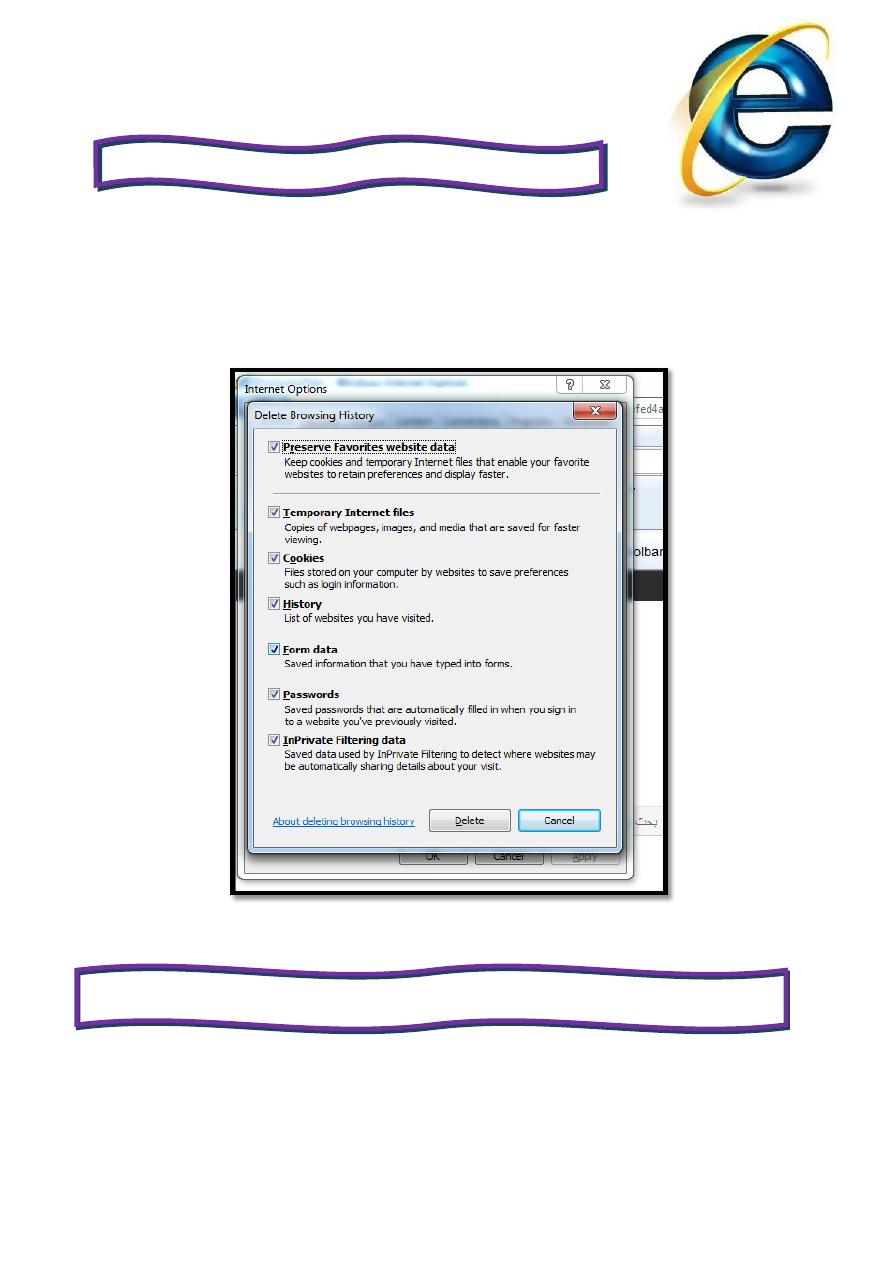
First stage – College of Medicine – University of Mosul\ Nineveh
The Internet Explorer- lerture3
2016-2017
Maha al ani
6
To delete your browsing history in the desktop
Open the desktop, and then tap or click the Internet Explorer
icon on the taskbar.
1. Tap or click the Tools button, and then tap or click Internet options.
2. Under Browsing history, click Delete.
3. Select the types of data you want to remove from your PC, and then click
Delete.
To delete your browsing history when you close browsing sessions
You can set Internet Explorer to delete your history each time you close a browsing
session as the following.
1. Open the desktop, and then click the Internet Explorer icon on the taskbar.
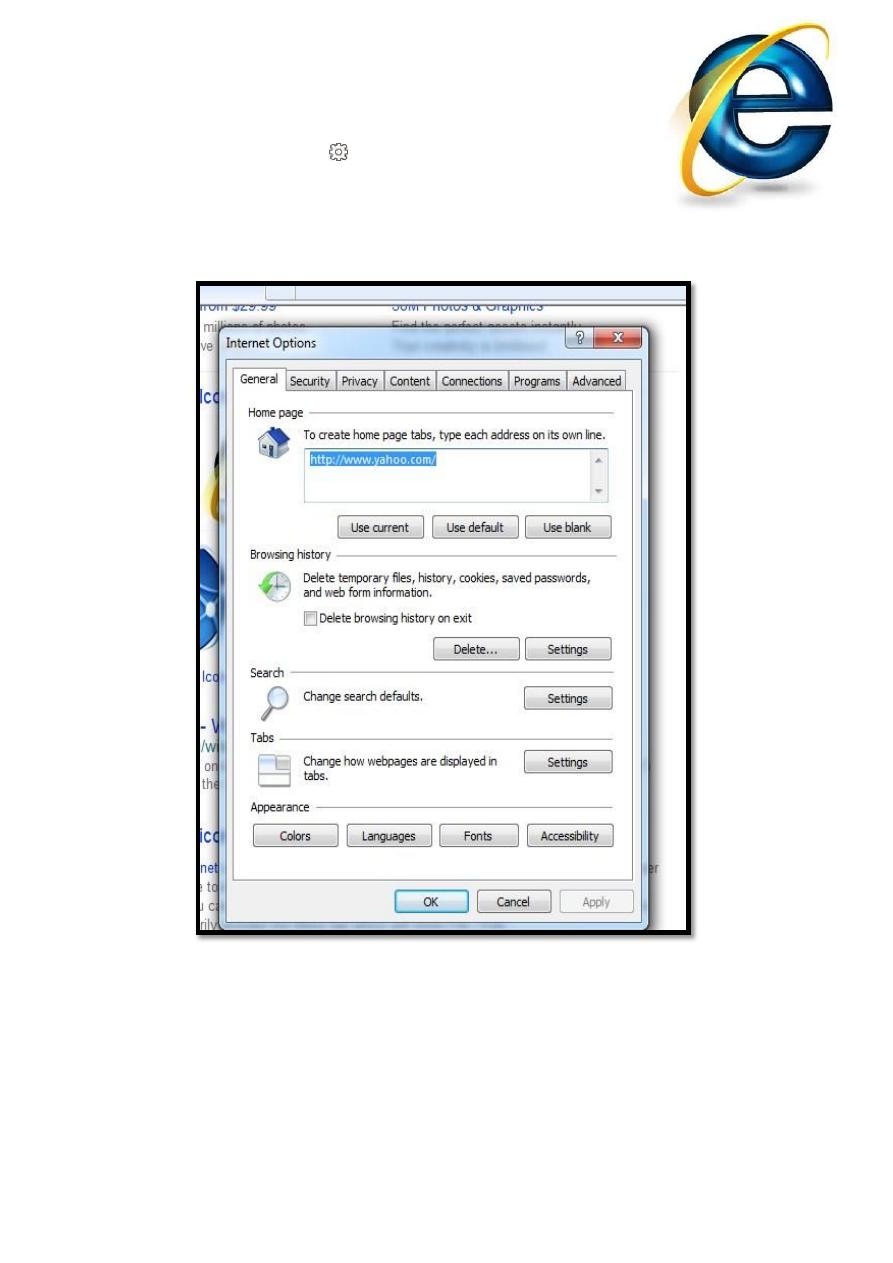
First stage – College of Medicine – University of Mosul\ Nineveh
The Internet Explorer- lerture3
2016-2017
Maha al ani
7
2. Click the Tools button , and then click Internet options.
3. Under Browsing history, select the Delete browsing
history on exit check box, click Apply button and then click
OK.
